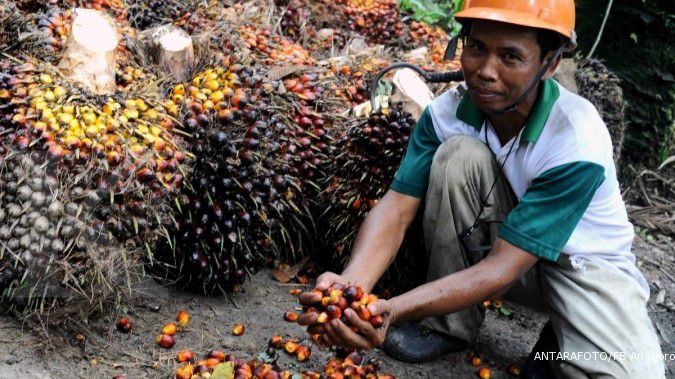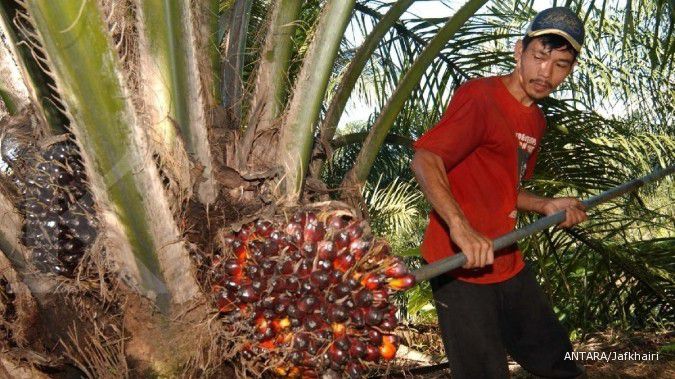JAKARTA. Indonesia, the world's largest producer of palm oil, has asked the European Union (EU) to ease its regulations on palm oil imports, mainly to help Indonesian farmers enjoy benefits from the exportation of palm oil. In a meeting with the President of the European Council, Herman Van Rompuy, on Wednesday at the Presidential Palace, President Joko "Jokowi" Widodo personally asked the EU's principal representative to ease the export barriers for its palm oil products in the bloc's 28 member countries. "We have asked [Van Rompuy] to help us solve this problem," President Jokowi told reporters after his 30-minute closed-door meeting with the former Belgian prime minister.
"Oil palm [plantations] belong not only to big companies; 45 percent belong to farmers so it is necessary to find a solution [to this problem]." Palm oil is the second highest contributor to total exports in Indonesia, after coal. It contributed $19.22 billion, or 10.53 percent, to the country’s total exports of $182.57 billion last year. The Indonesian Palm Oil Producers Association (Gapki) recently said that Indonesia produced an estimated 31.5 million tons of crude palm oil (CPO) this year, with 9 million tons absorbed by the domestic market and the remaining 22 million tons shipped overseas. Indonesia’s largest export market for CPO is India, accounting for 20 percent of total exports, followed by the EU at 19 percent and China at 15 percent. The Indonesian Palm Oil Board (DMSI) has said recently that there had been a strong campaign in Europe to reduce the consumption of palm oil, which has been intensively scrutinized as a result of its high saturated fat content--a fat that is detrimental to health--and also as a result of the rampant deforestation and environmentally unfriendly practices that are seen in palm oil plantations across Indonesia. The antipalm oil sentiment is already evident, especially in France where some food manufacturers already put a “no palm oil” label on their products. Indonesia has also attracted recurring accusations from its trading partners, including the EU, about its palm oil derivatives. Van Rompuy said that he would take Indonesia's request as "the council's concern", according to Foreign Minister Retno LP Marsudi, who accompanied Jokowi during the meeting. The EU is the Indonesia's third largest trading partner and the second largest foreign investor after Japan.
In a written statement, Van Rompuy said there was still "vast untapped potential" in the economic relations between the EU and Indonesia. "The EU looks forward to engaging with the new Indonesian government in negotiations on an ambitious Comprehensive Economic Partnership Agreement. This would give a boost to bilateral trade and investment and create prosperity and jobs in both Indonesia and the EU," he said. Van Rompuy also applauded Indonesia's commitment to the settlement of international conflicts through peaceful means. Van Rompuy, who took office in 2009, will step down from his current position by the end of this month. He will be succeeded by former Polish Prime Minister Donald Tusk. (Hasyim Widhiarto)



